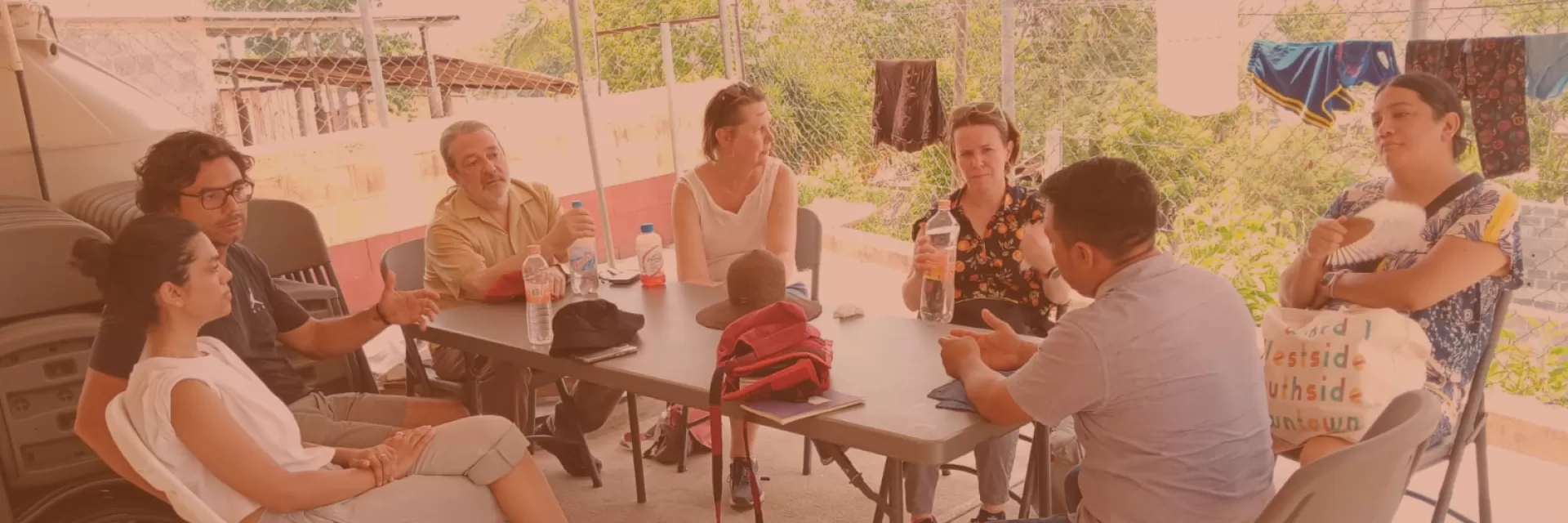México es un cementerio de migrantes
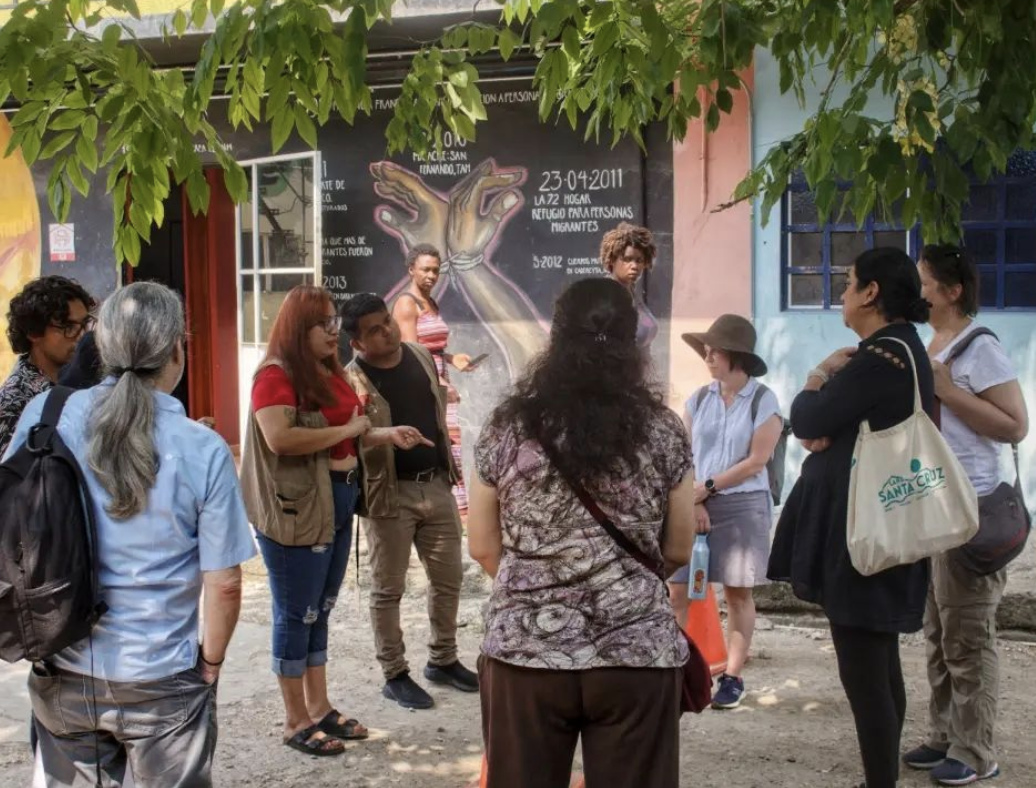 This is the first line I scrawled in the notebook I took on the Quixote Center’s solidarity trip to Southern Mexico in June. It was uttered by one of our hosts at La 72 shelter in Tenosique, Tabasco. We arrived in Tenosique shortly after the end of Title 42, the border policy masquerading as public health regulation, which had summarily expelled over a million asylum seekers at the U.S.-Mexico border for three years. In its place, the Biden administration had implemented a new asylum ban (which a federal judge has since vacated) that rested on the legally and morally flawed proposition that asylum seekers should have sought permanent protection in Mexico or another country along their journey to safety—not, our government was telling them, in the United States.
This is the first line I scrawled in the notebook I took on the Quixote Center’s solidarity trip to Southern Mexico in June. It was uttered by one of our hosts at La 72 shelter in Tenosique, Tabasco. We arrived in Tenosique shortly after the end of Title 42, the border policy masquerading as public health regulation, which had summarily expelled over a million asylum seekers at the U.S.-Mexico border for three years. In its place, the Biden administration had implemented a new asylum ban (which a federal judge has since vacated) that rested on the legally and morally flawed proposition that asylum seekers should have sought permanent protection in Mexico or another country along their journey to safety—not, our government was telling them, in the United States.
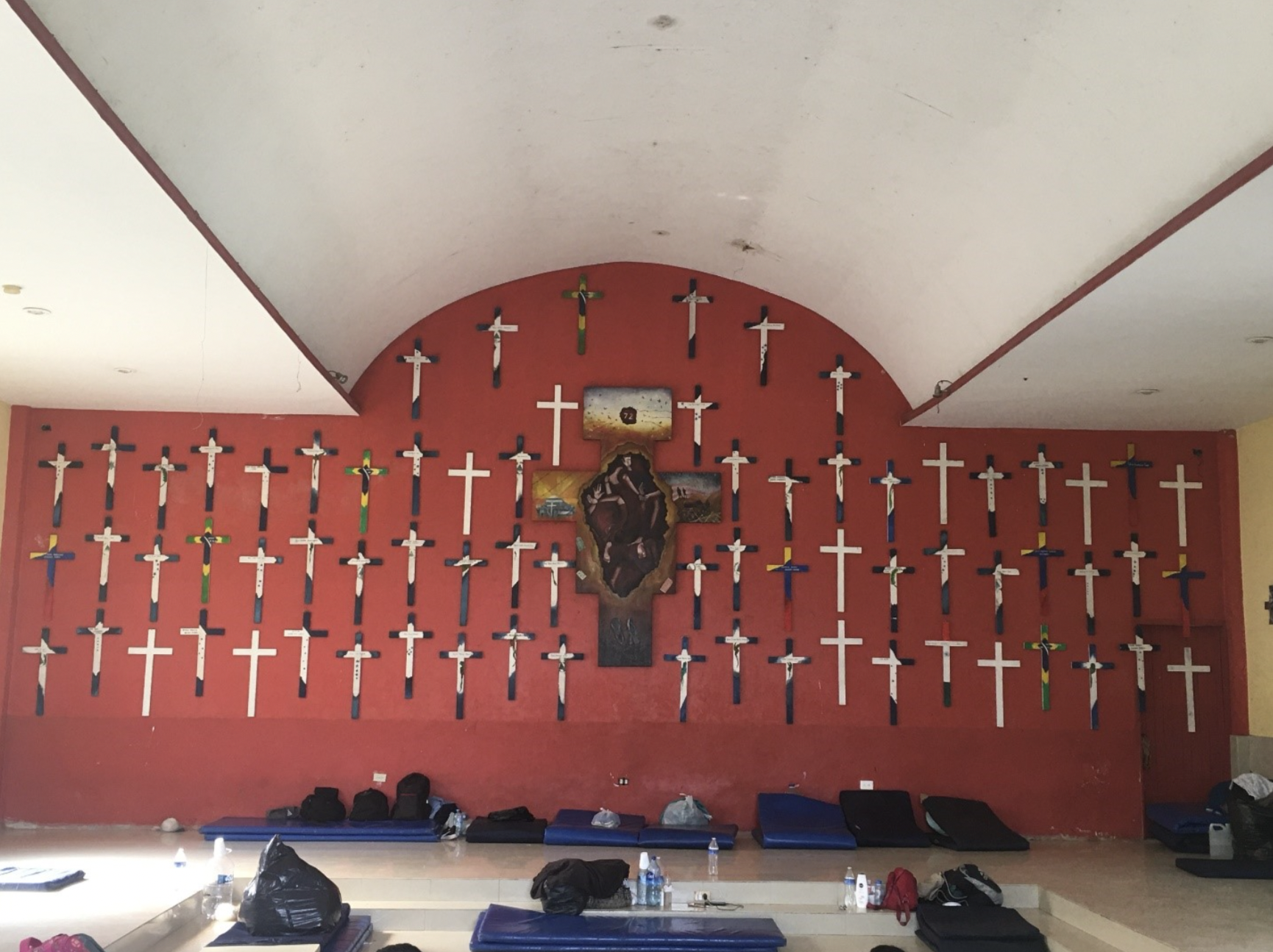
La 72 shelter is named for the 72 migrants slaughtered by cartel members in the Mexican state of Tamaulipas in 2010. Honoring the lives lost while seeking refuge in part by protecting the dignity of those who are currently on the migration journey is core to the work of La 72. Our hosts made clear that the Tamaulipas massacre—while extreme given the number of lives lost—is sadly part of a continuum of abuse and violence that migrants suffer while traversing the spine of Mexico on their way to the United States – Mexico es un cementerio de migrantes. Our government’s response to that reality is to insist that migrants stay in Mexico and seek protection there, while stories of atrocities from the southernmost part of that country all the way to Texas border continue to emerge.
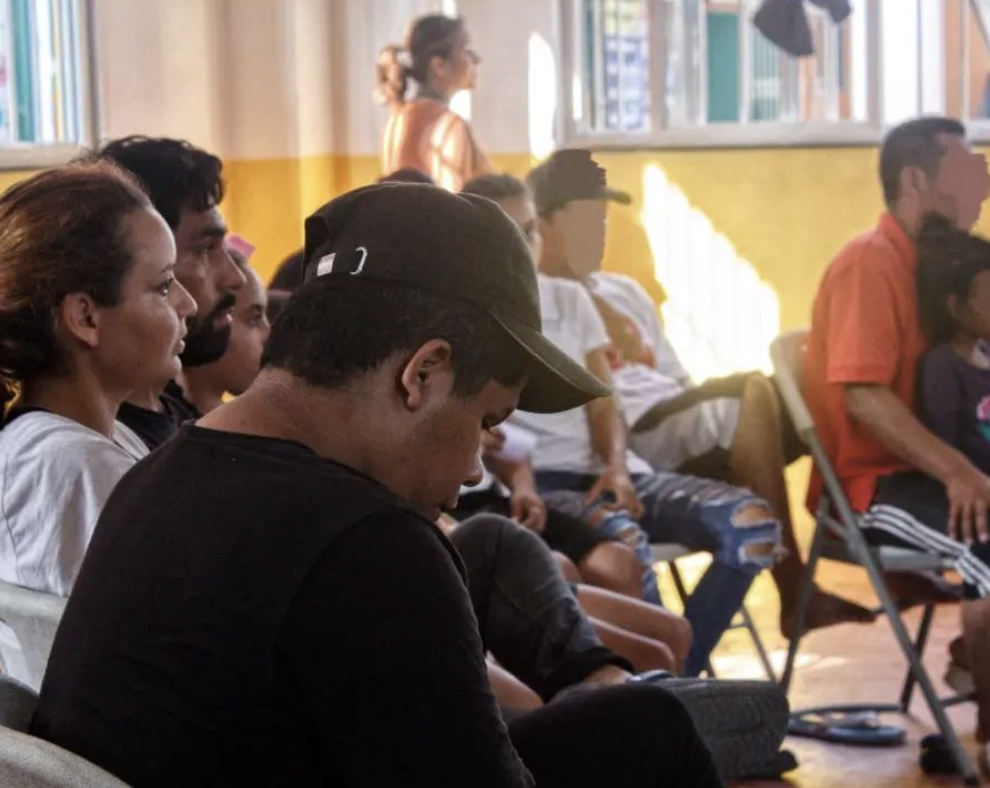 Encountering migrants near Mexico’s southern border was difficult, knowing that the horrors they had experienced in the Darien Gap and the mountains of Honduras and Guatemala were likely prelude to what they still had left to endure if they made it to the U.S. border. Our hosts at La 72—a resilient, brave, and big-hearted group of staff and volunteers working under extremely difficult circumstances and with limited resources—were clear-eyed about the dangers ahead of the guests staying at the shelter and shared that information with compassion and honesty. But they and we knew that no number of warnings about that peril would likely deter these parents, unaccompanied children, families, and solo travelers from seeking safety in the United States. What they were leaving behind
Encountering migrants near Mexico’s southern border was difficult, knowing that the horrors they had experienced in the Darien Gap and the mountains of Honduras and Guatemala were likely prelude to what they still had left to endure if they made it to the U.S. border. Our hosts at La 72—a resilient, brave, and big-hearted group of staff and volunteers working under extremely difficult circumstances and with limited resources—were clear-eyed about the dangers ahead of the guests staying at the shelter and shared that information with compassion and honesty. But they and we knew that no number of warnings about that peril would likely deter these parents, unaccompanied children, families, and solo travelers from seeking safety in the United States. What they were leaving behind 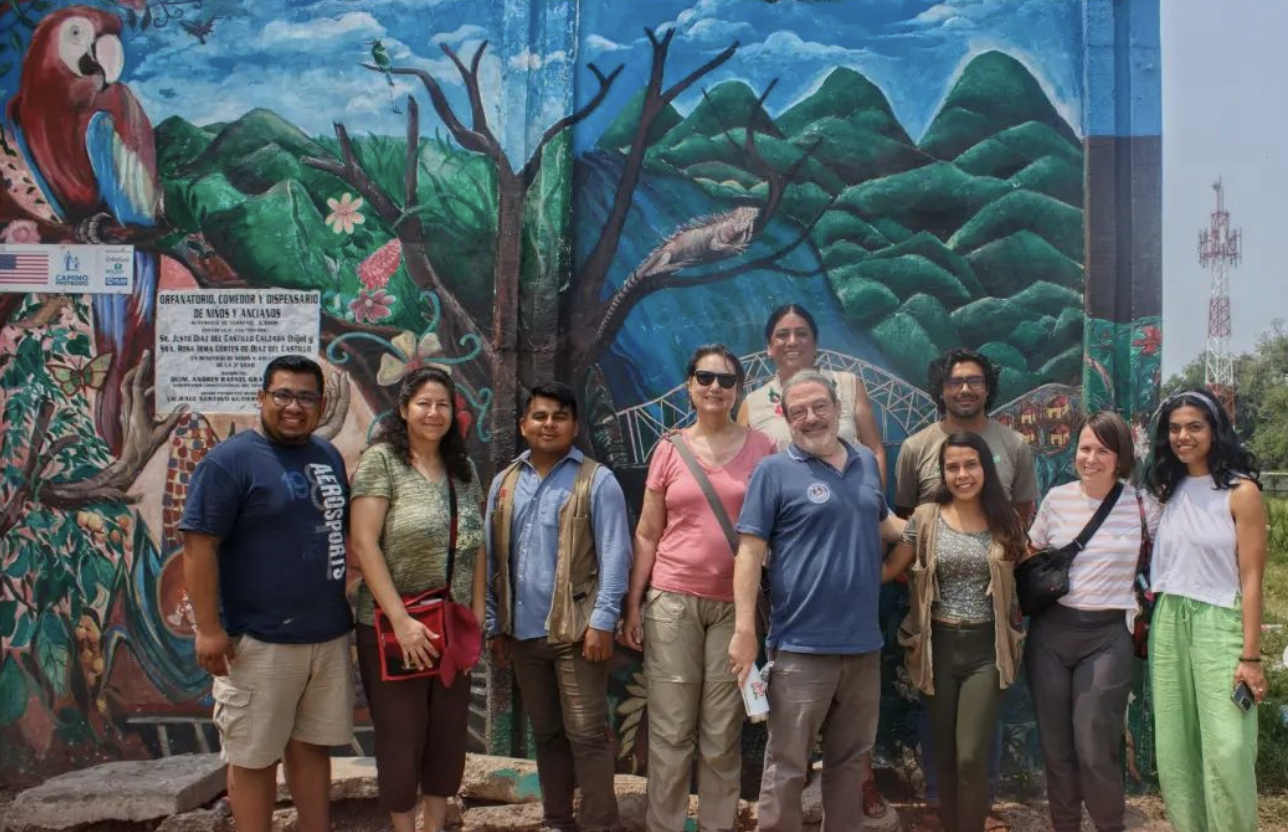 (violence, political persecution, extreme poverty, death threats) and what they saw ahead (safety, freedom, family reunification, the ability to support themselves and their families with dignity) overpowered the dire warnings that advocates could give.
(violence, political persecution, extreme poverty, death threats) and what they saw ahead (safety, freedom, family reunification, the ability to support themselves and their families with dignity) overpowered the dire warnings that advocates could give.
The guests wanted to know how to do it “correctly”—how to access the glitchy CBP One smartphone app that our government has insisted asylum seekers use and wait for appointments in Northern Mexico. They wanted to know what would happen if they made it across the border to the United States (probably you will be detained in an hielera, a freezing cold CBP detention center with no access to lawyers or support—if you’re lucky, you’ll make it out of there to fight your case in court and not be summarily deported). Some were seeking protection through the Mexican asylum system, which we learned is underfunded, overburdened, and unable to respond adequately to the immense humanitarian need. Our hosts also took us by a facility in construction that will serve as a jail for migrant families, underscoring that the Mexican government, like our own, prefers to invest in punitive measures to deter people from migrating.
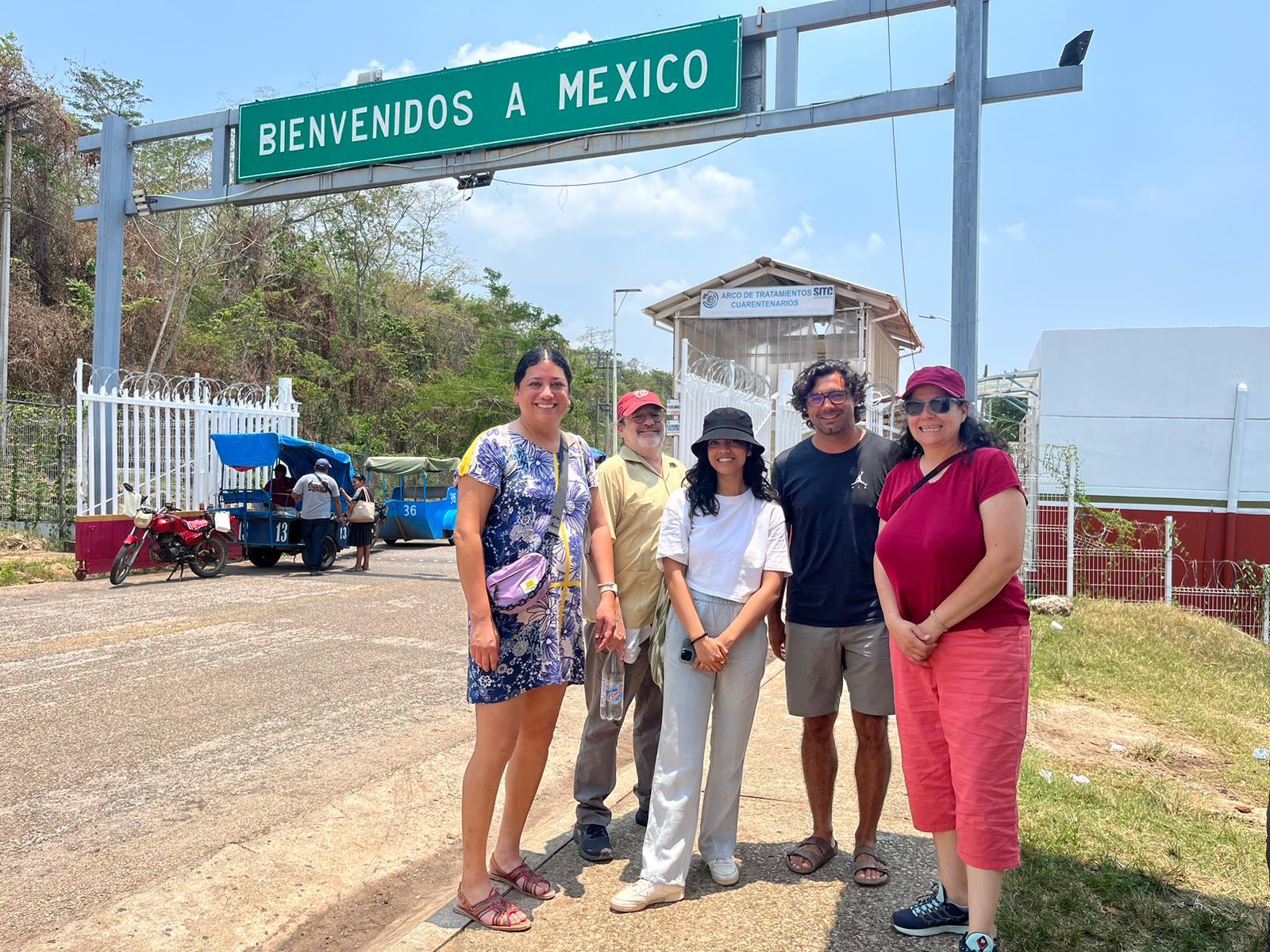
The solidarity trip did not provide any simple answers to confronting the hemisphere-wide (and global) crisis of compassion that pushes people seeking safety onto ever more dangerous paths. As the summer wore on, brutal stories emerged from the Mediterranean to the Rio Grande of more suffering, more death, more governments looking the other way or actively making the conditions more dangerous. Yet the solidarity trip and our encounters with migrants and the advocates who have chosen a vocation of service were deeply meaningful and imbued with moments of hope and connection—children playing soccer and joking with us, parent-to-parent conversations about the lengths we go to for our kids, jokes with the advocates about navigating official immigration bureaucracies on both sides of the border. Our group of U.S.-based immigrants’ and refugee rights advocates left Tabasco further committed to the difficult work ahead, in solidarity with each other and with humans in movement for more dignified lives.
